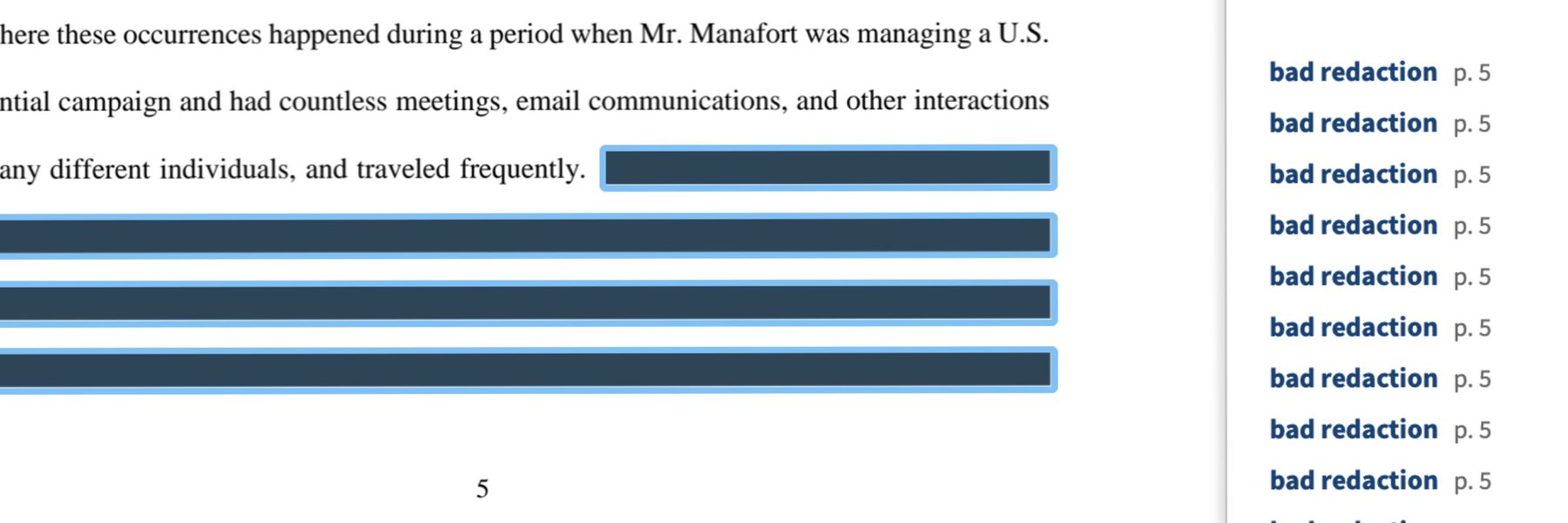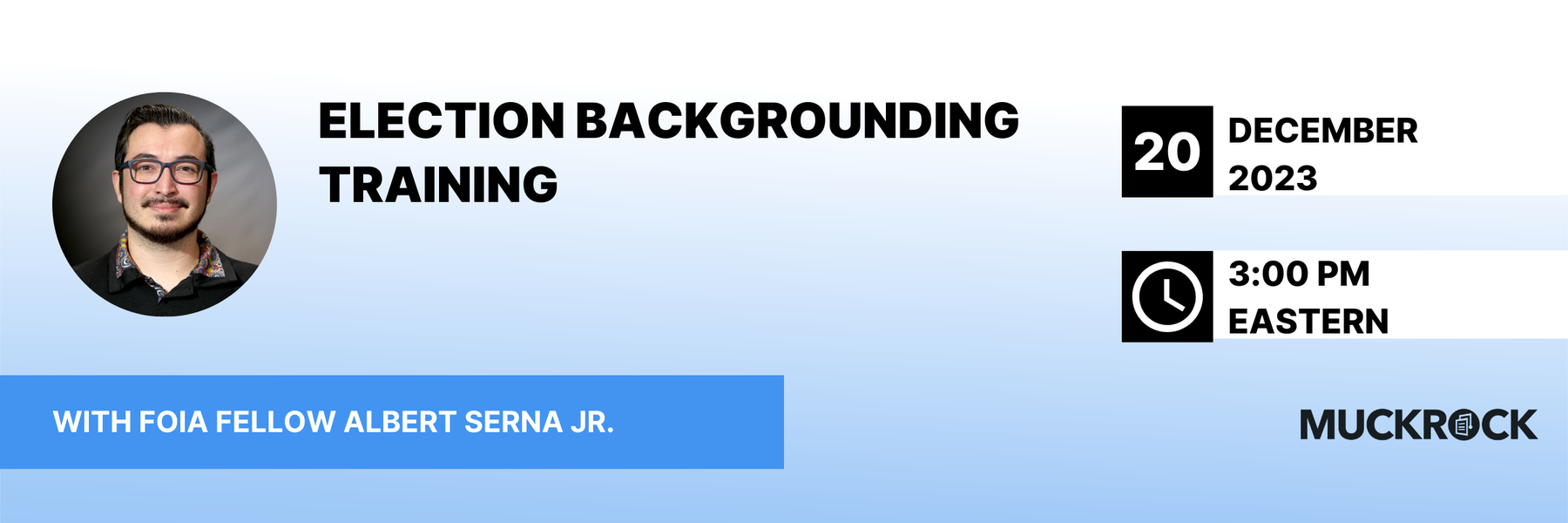Recently, MuckRock hit a new milestone: the 70,000th request we had helped file on behalf of our users. Here’s a little of what goes on behind the scenesand how you can have your support for that mission multiplied by 12 through the end of the year.
Taking the muck work out of muckraking
Access to government records is a fundamental right. In fact, interfering with access to government documents was in the Declaration of Independence:
[King George III] has called together legislative bodies at places unusual, uncomfortable, and distant from the depository of their public Records, for the sole purpose of fatiguing them into compliance with his measures.
As modern requesters can attest, that fatigue continues, but we work to reduce it everywhere we can. We start before requests are even filed, as we call up government officials, check contact information, and build up our database of over 14,000 agencies, all of which are publicly browsable and include key statistics such as average response time, rejection rates, and more.
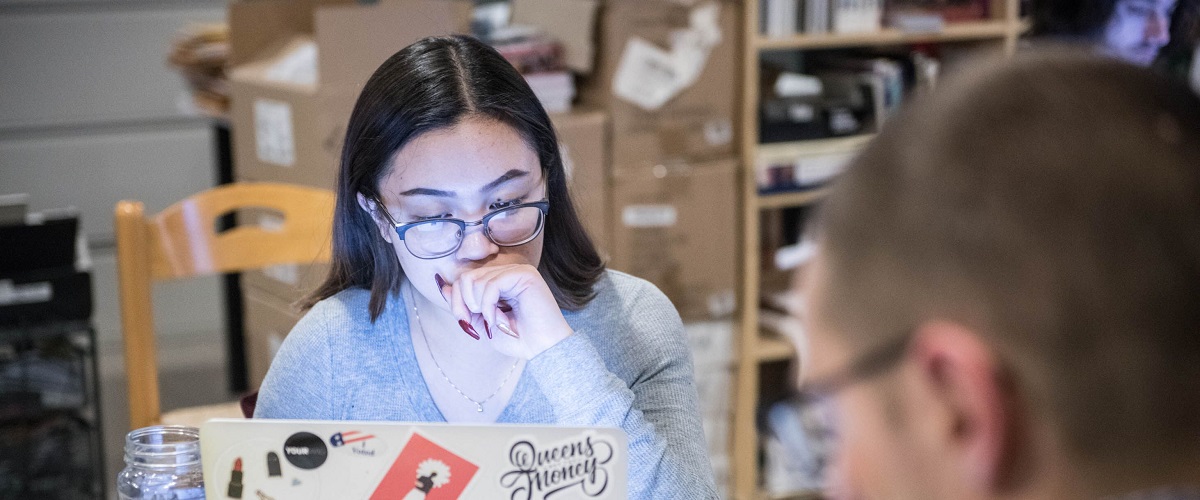
Then the fun begins, as we submit requests via agencies’ preferred contact methods. In 2019, that still includes mailing letters and submitting faxes, meaning a MuckRock internship is also a walk back through communications history (no carrier pigeons, yet).
Our goal is to reduce users’ worries. We keep backup documentation and confirmations when needed, and while we encourage agencies to move towards more modern, digital ways of accepting requests, we don’t want to let agencies use antique methods as a way to bar access.
Building the next generation of transparency masters
We don’t stop there. Each week, we help hundreds of requesters with answers to their questions, ranging from tactics on phrasing to help with appeals (and, sometimes, how to open rare file types or commiseration over particularly obstructive agencies).
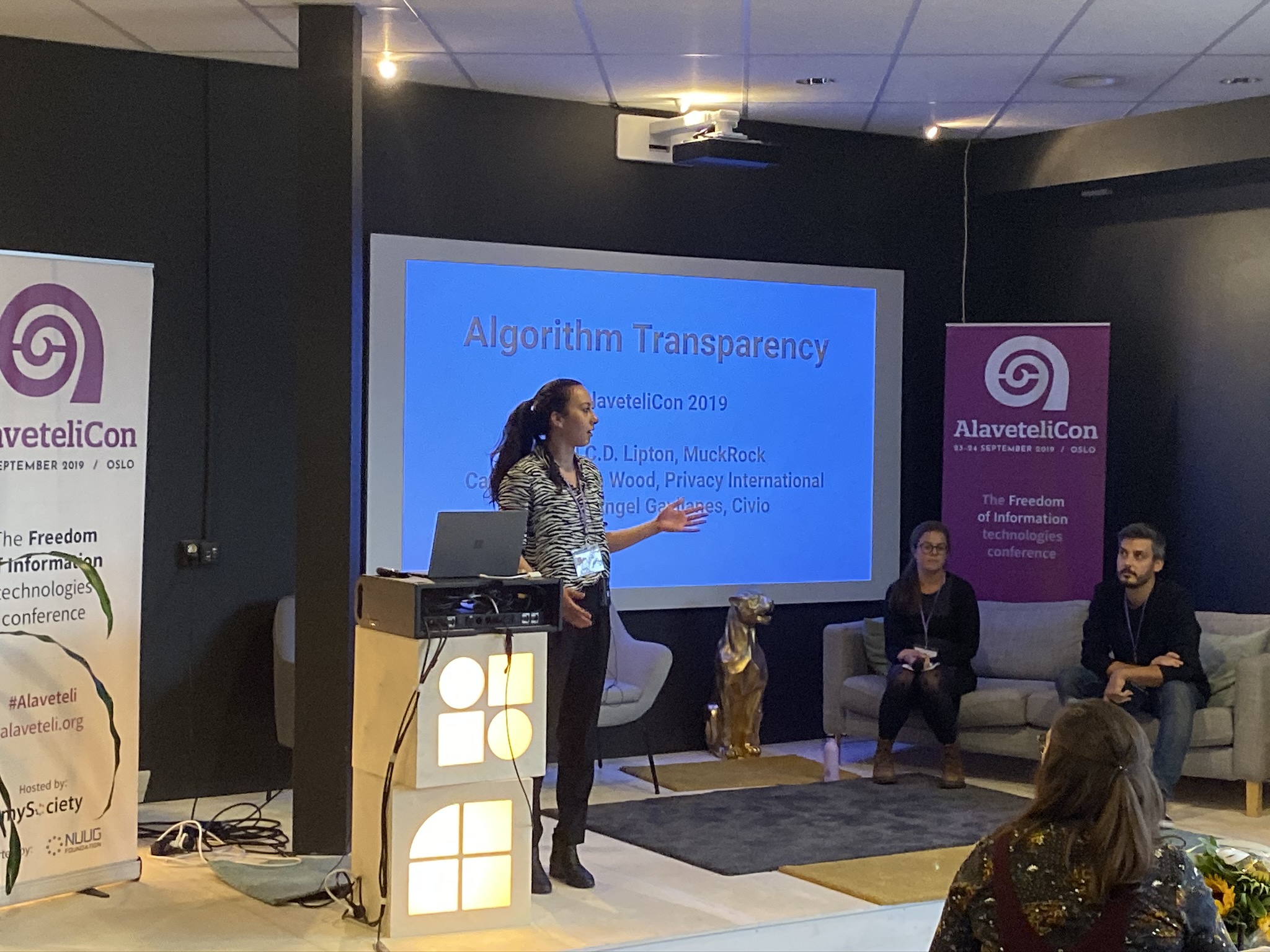
Based on the questions we get, we update our guides to each states’ public records laws and our exemption database. We also take our work offline, averaging almost one training, workshop, or public event per week over the last year, including talks in classrooms, newsrooms, libraries, community centers and more. We want everyone to feel confident in understanding their rights under public records laws, as well as understanding why they are so critical to an informed democracy.
We’re just getting started — and we need your help
Today, we are the largest independent, open repository of public records in the United States, but we’re constantly working to find new ways to make transparency relevant, accessible, and meaningful to everyone.
This was why our ability to join forces with DocumentCloud, a leading document analysis tool and repository, was so critical, and together we’ve been able to help that platform grow to new heights, now hosting over one hundred million pages of primary source materials.
It’s also why, for the past year, we’ve had a weekly in-person hack night, where volunteer coders, designers, and researchers come together to help prototype new ways of opening government.
How well is this approach working? We mapped out our growth since 2010 so you could see for yourself.
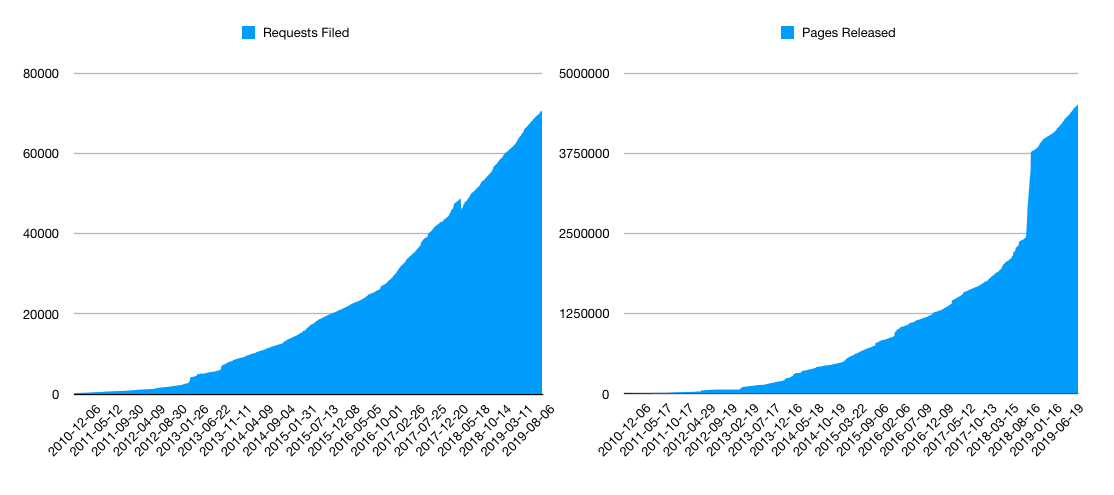
But we need your help to keep growing. User fees cover just one out of four dollars needed to keep MuckRock running; the rest comes from grants, consulting, and generous donors like you. Last year, thanks to one generous supporter, we were able to launch a whole new FOIA fellowship, while another donor helped us upgrade our couch.
But any amount you can contribute helps us cover the cost of stamps, fax services, upgraded scanners, and other essentials that let us focus on opening government for everyone.
And today your support is even more important. Now — through December 31 — NewsMatch will match your new monthly donation 12x or double your one-time gift, all up to $1,000. This is an amazing opportunity to make your donation go twice as far.
So please, if you’re able, take a minute to support transparency across America and help us keep opening up government, no matter how distant (or antiquated) our depositories of public records may be.


